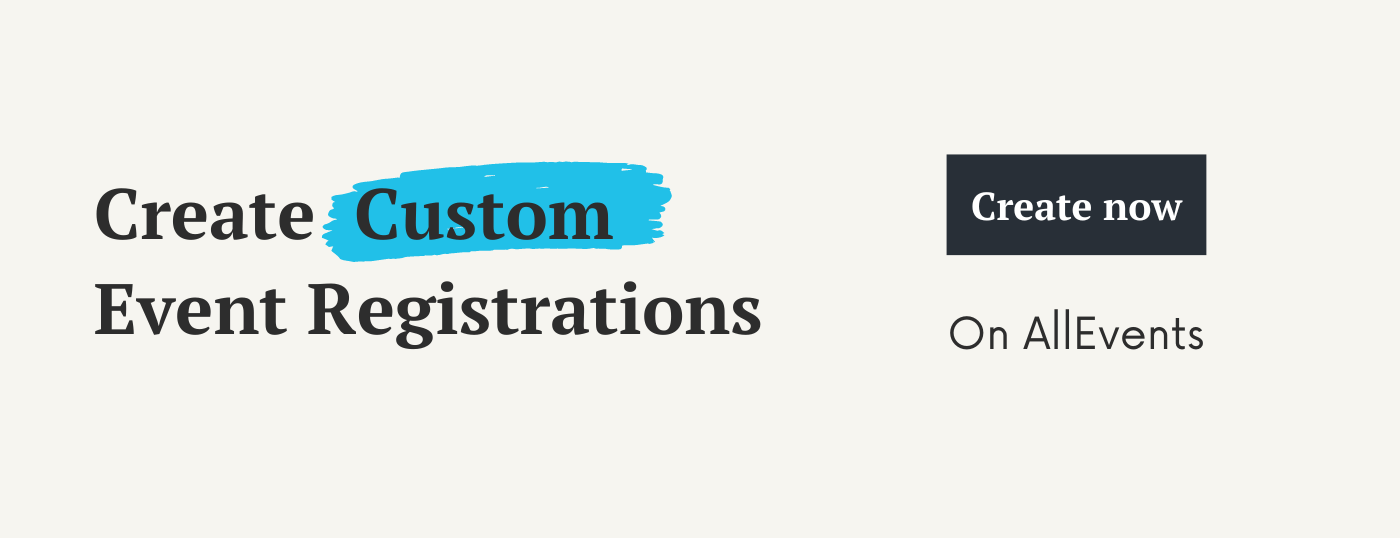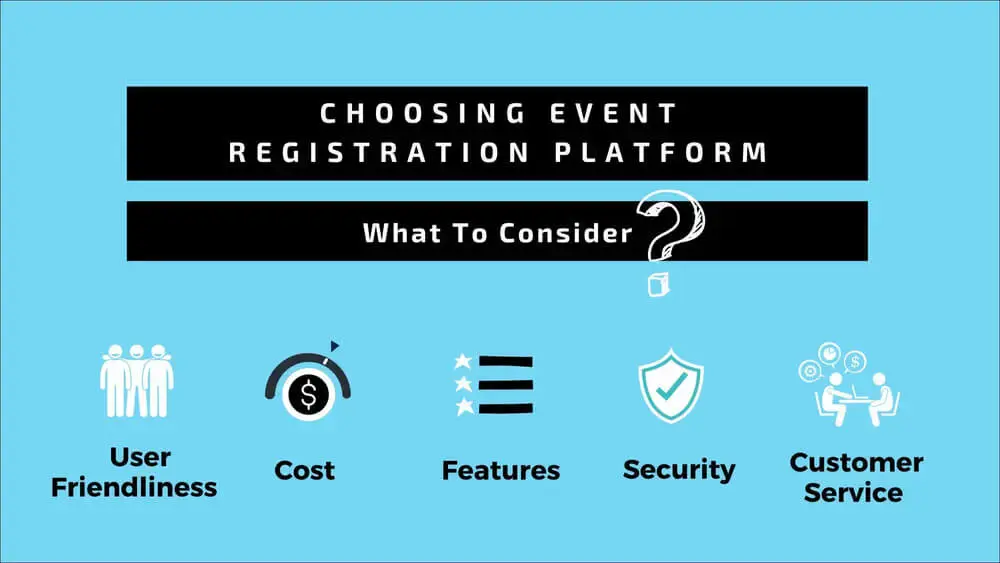Event registration is a critical component of event management. In this blog, we’ll discuss the importance of Event Registration and tips and tricks to help you make the most of your Event Registration Process.
With the right tools and processes in place, you’ll be able to maximize your event’s success and see better results. So let’s dive in and explore the world of event registration and how it matters to event professionals.
What is Event Registration?
Event Registration is the process of collecting and managing guest information, providing instructions for payment, and tracking attendance while delivering a positive guest experience.
There are two types of event registration:
- Online event registration
- Offline event registration

1. Online Event Registration
Online event registration is the most popular type of event registration (for good reason). It is cost-effective, convenient, and easy to use. It allows attendees to register for an event quickly and securely online and gives event organizers instant access to registrants’ information.
2. On-site Event Registration
On-site event registration is a more traditional approach to event registration, where attendees register in person at the venue. It is ideal for events that don’t require pre-registration or where registration is completed on the day of the event. For venue registration, you can collect event registration in form of QR codes.
Here’s how you can create a custom event registration form on AllEvents.

How Event Registration can help you measure success?
Event registration is the fundamental unit of planning and executing successful events.
Without event registration, it would be nearly impossible to know “how many people are attending an event” and “what kind of resources and services are needed to accommodate them.”
It also allows for accurate budgeting and financial management. By collecting data on the number of guests and the types of services they use, you can better estimate costs and make adjustments as needed.
It gives you a better understanding of their target audience and creates more tailored marketing campaigns. You can also use the data to connect with potential partners or sponsors and build relationships with event attendees.
Tips for choosing the Right Event Registration Platform
If you want your event to be successful, then you need to have a reliable event registration platform. Here are a few things to consider when choosing the right event registration platform:

1. User-Friendliness
The event registration platform you choose should be easy to use, both for you and your attendees. Look for platforms that are intuitive and have a user-friendly interface.
If you are looking for some catchy event registration, then you can check out Jotform templates and integrate them into your event website or create your custom registration process on AllEvents without any integrations to worry about.
2. Cost
The cost of the event registration platform should be taken into account when making your decision. Many platforms offer different pricing plans with different levels of features, so make sure to find one that fits your budget.
There are many platforms that offer event registration at low costs, like Rsvpify (starting from $39/month) and AllEvents (no cost).
3. Features
Different event registration platforms have different features, so it’s important to find one that has the features your event needs.
Some platforms, like AllEvents, allow for custom registration forms, payment processing, ticket creation, and more. Make sure to compare the features of each platform before you decide which one is right for you.
4. Security
When collecting sensitive information, such as credit card numbers or personal information, security should be a top priority. Make sure the event registration platform you choose is secure and has a good reputation for protecting its customers’ data.
5. Customer Service
When things go wrong, you will need their customer service team to help you out. So most importantly, you need to check if the event registration platform has a good customer service team.
By taking into account user-friendliness, cost, features, security, and customer service, you can make sure you’re getting the best platform for your event.
With AllEvents’ streamlined registration process, you can quickly list your events and start collecting registrations from attendees.

Best Practices to Maximize Your Event Registration
Properly executing an event registration process will help ensure that participants have an enjoyable experience. Here are some best practices for event registration that will help you create an efficient registration process.
1. Make the Registration Process Easy
Streamline the registration process by keeping it simple and user-friendly. Make sure the registration form is easy to fill out and clearly explains the information being requested.
Provide clear instructions and help text if necessary, and test the registration process to ensure it’s working properly. This will help minimize frustration and increase the likelihood that people will complete the registration process.
2. Provide Multiple Registration Options
Offer a variety of registration options such as online, over the phone, or in person. This allows attendees to choose the method that works best for them.
Consider offering discounts or incentives for early registration, which can encourage people to sign up early and help you plan better for the event.
3. Send Event Reminders
Regular reminders about the event can help boost attendance. You can send out updates and reminders to those who have already registered, as well as those who may be considering registering. This will help keep them informed and encourage them to sign up.
Reminders can be sent through email, text, or social media. Make sure the reminders are personalized and provide useful information, such as the event attractions, schedule, and directions to the event.
4. Collect Important Information
Collect key information such as name, contact details, and other necessary requirements. This will help you plan and prepare for the event.
You can also use this information for post-event follow-up and to create a database for future events.
5. Offer Pre-Event Information
Provide attendees with information such as the event schedule, location, parking, and any other important details before the event. This will help attendees prepare and minimize any confusion or stress on the day of the event. Consider using a mobile app or website to provide up-to-date information to attendees.
You can include all this information in your event description also. It will make people know what awaits for them.
6. Utilize Technology
Take advantage of technology to make the registration process smoother and more efficient. Use online registration forms, event management software, and social media to reach a wider audience and promote the event.
Consider using QR codes or NFC tags to streamline check-in at the event. You can use analytics to track registration and attendance and gather valuable data for future events.

Conclusion
Event registration is a crucial part of the event planning process, and it is important to ensure that it is done correctly.
By following the best practices outlined in this blog, you can make sure that your event registration process is secure and hassle-free.
With the proper event registration practices in place, you can be sure that your event will be a success. Good luck!

